Sulaimani Tea Recipe (Spiced Tea Without Milk)
Sulaimani Tea, also known as Sulaimani Chai, is a light black tea brewed with whole spices, gently sweetened, and finished with a splash of lemon. This clear, spiced tea is popular in Kerala and Hyderabadi traditions, often enjoyed after meals to aid digestion and cleanse the palate. In this easy recipe, I’ll show you how to make a good cup of Sulaimani using simple ingredients like black tea, cardamom, cloves, cinnamon, and lemon. You can also add fresh mint leaves for a cooling touch.
What Makes Sulaimani Tea Unique
Sulaimani Tea is a clear, gently spiced black tea made without milk. It is typically brewed using strong CTC or dust tea and infused with whole spices like cardamom, cinnamon, and cloves.
A bit of sugar is usually added to lightly sweeten the brew. Just before serving, a dash of lemon juice is stirred in, adding a subtle tang that balances the sweetness and warmth of the spices.
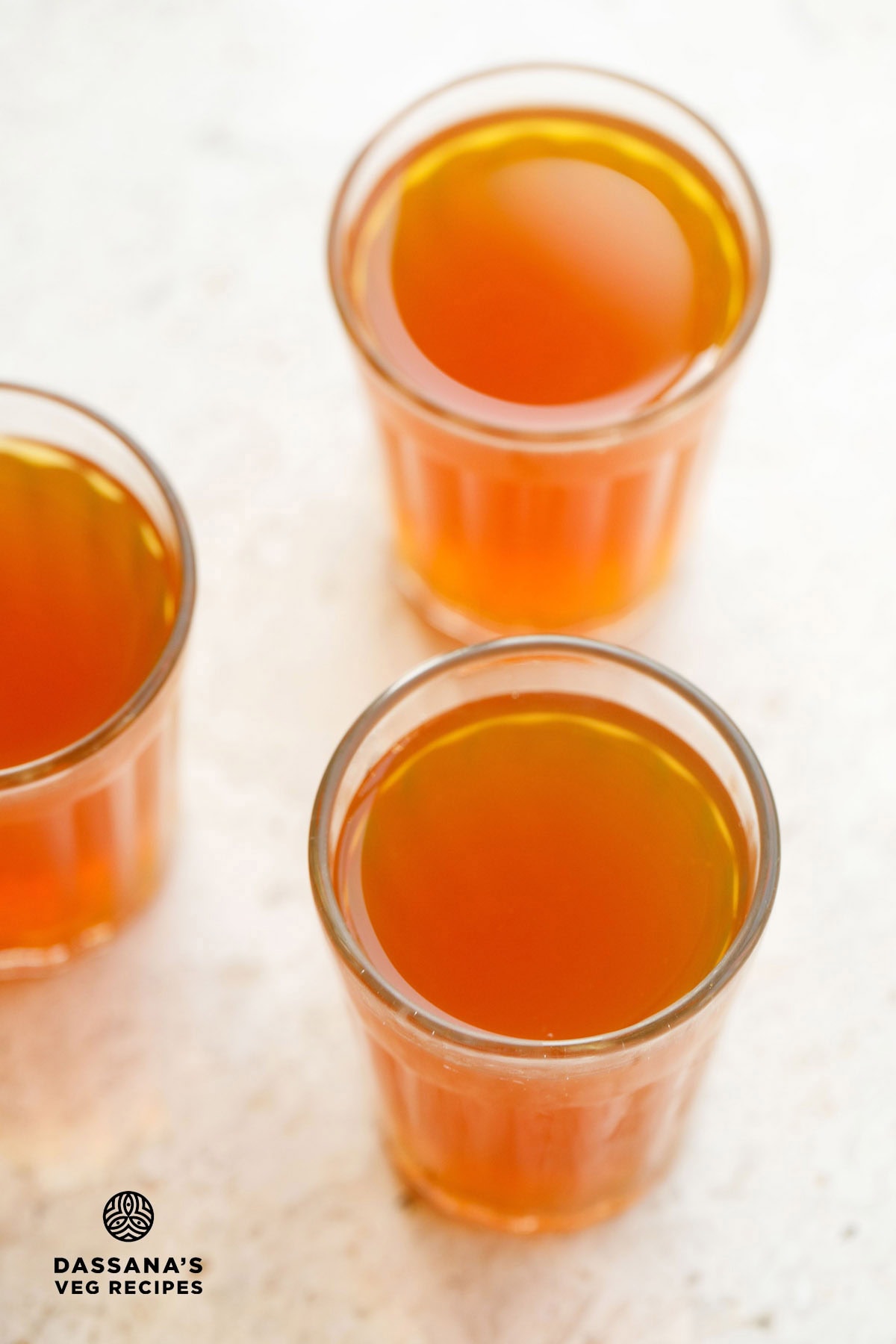
Sulaimani Tea has its roots in Arab traditions and was brought to Kerala’s Malabar region through centuries of trade with Arab traders.
Table of Contents
Over time, it became deeply woven into the culinary traditions of the Malabar Muslim community and later found a place in Hyderabadi cuisine as well.
I first had Sulaimani Tea during my travels in Kerala and instantly took a liking to it. Alongside Kashmiri Kahwa, it remains one of my favorite clear teas – light, comforting, and ideal after a rich or heavy meal.
At home, I usually prepare Sulaimani using Assam tea powder or a strong blend of CTC and long leaf tea, like the kind commonly available from Indian brands.
For a lighter version, you can use Green Tea instead of black tea. It gives a more delicate flavor while still pairing well with the spices and lemon.
I pair it with whole spices such as cardamom, cloves, and cinnamon, along with raw sugar, lemon juice, and fresh mint leaves. The balance of warm spices, gentle sweetness, and bright lemon makes it especially soothing.
Sulaimani is still widely prepared today, often brewed with care to welcome guests or served after festive meals like Biryani. Its mild spices and light consistency make it soothing and easy on the stomach.
Each home brings its own touch to the recipe. Some include ginger for extra warmth, others add fresh mint for a cooling note, and a few may use saffron for aroma.
But the essence of Sulaimani remains the same: a simple, spiced tea with a long-standing cultural and culinary presence.
If you enjoy spiced or herbal teas, you might also like:
- Masala Chai – Strong Indian milk tea brewed with warming spices.
- Adrak Chai (Ginger Tea) – Bold and invigorating, great for cold days or sore throats.
- Herbal Tea – A milk-based tea made with Assam tea, herbs, and spices. Comforting and lightly spiced.
- Turmeric Tea – Known for its anti-inflammatory benefits and earthy flavor.
- Mint Tea – A refreshing chai made with fresh mint leaves, Assam tea, and milk – soothing and good for digestion.
- Irani Chai – A creamy beverage with a strong tea decoction and thickened milk, commonly served in Irani cafés across Hyderabad and Mumbai.
How to Make Sulaimani Tea
Crush Spices
1. Peel and rinse 1 inch piece ginger. Take the whole spices listed below and the ginger piece in a mortar:
- 2 green cardamom pods
- 2 cloves
- ½ inch cinnamon stick
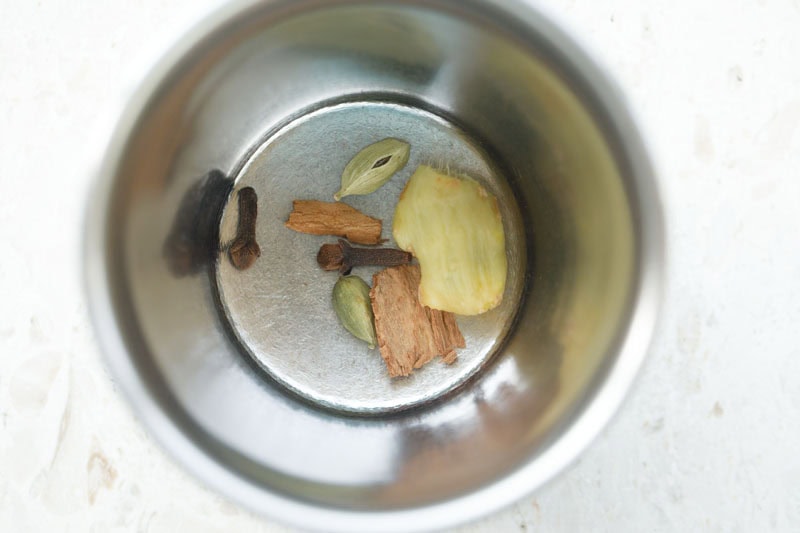
2. Crush all the spices and ginger lightly with the pestle.
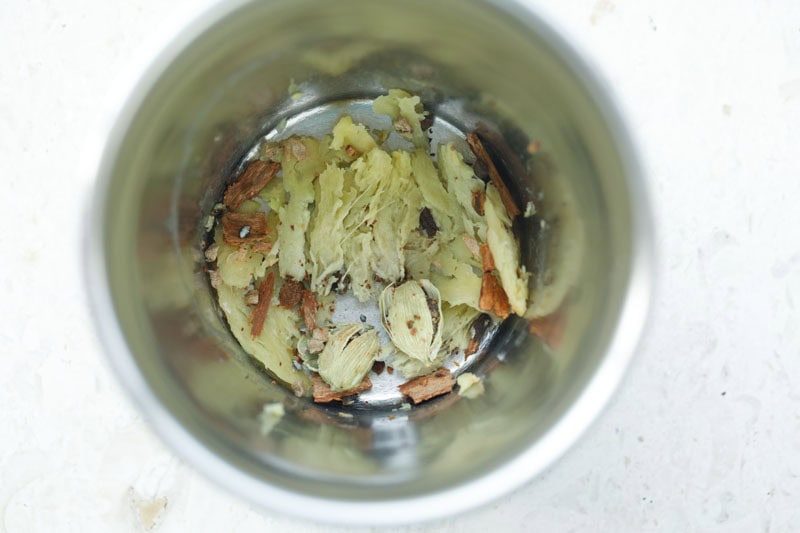
Boil Water With Spices
3. In a saucepan, add 2 cups water. Add the crushed whole spices and ginger.
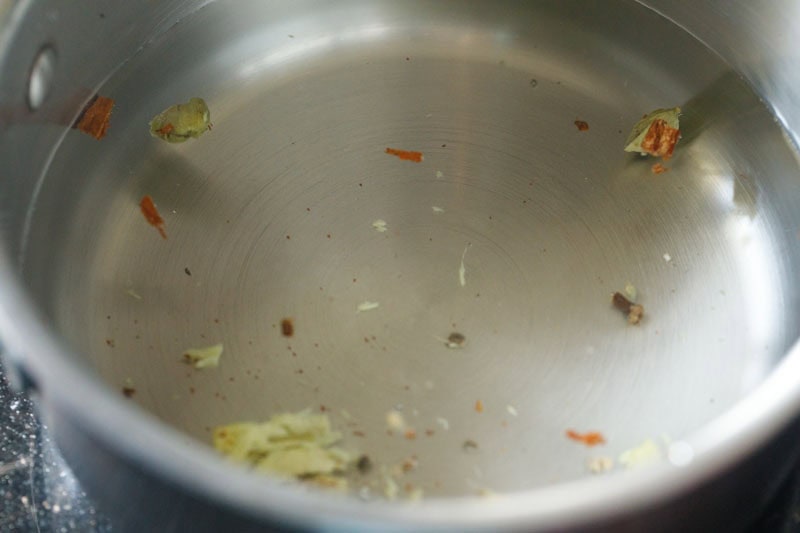
4. Bring water to a boil on medium heat. Reduce the heat slightly and let the spices simmer for 4 to 5 minutes. This helps the water absorb the flavors of the spices.
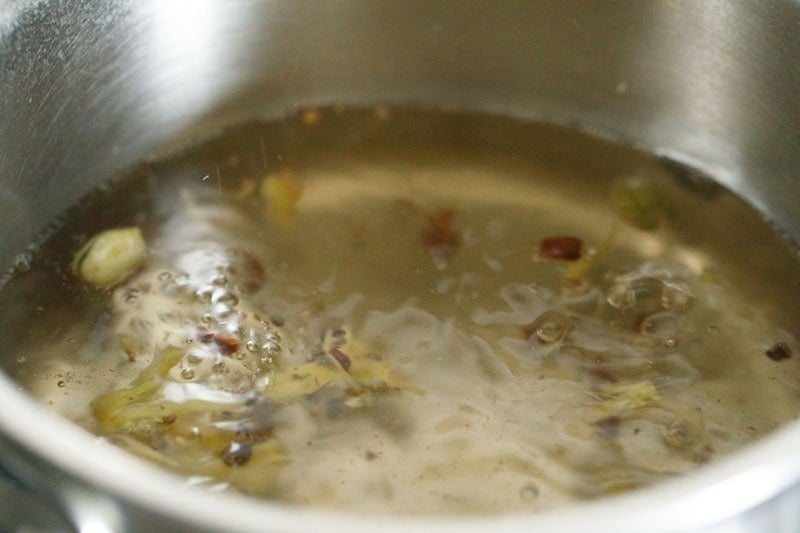
Make Sulaimani Tea
5. Add 1 teaspoon black tea powder or 1 tea bag. For a stronger tea, add 1½ teaspoons of tea powder.
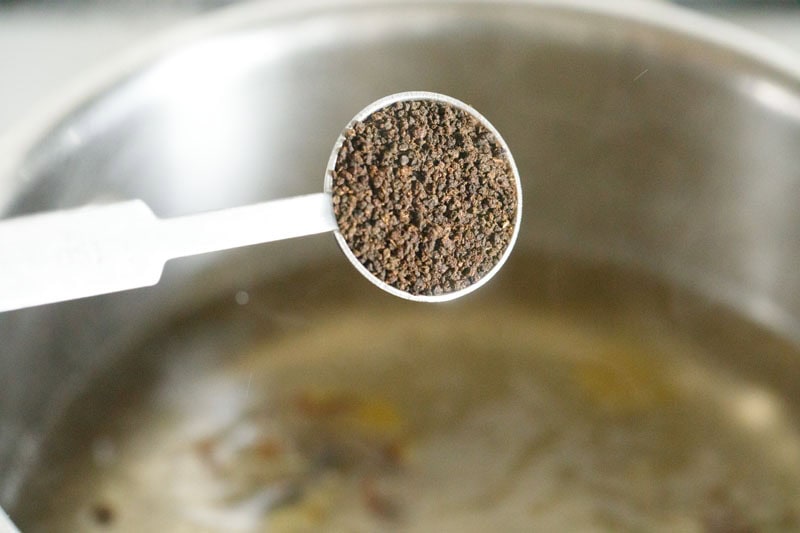
6. Simmer for 2 to 3 minutes or until the color deepens and darkens to a dark orange or reddish shade. Do not over-boil the tea as it can make it bitter.
If using tea leaves, turn off heat, add the tea leaves and stir. Cover with a lid and steep tea for 2 to 3 minutes.
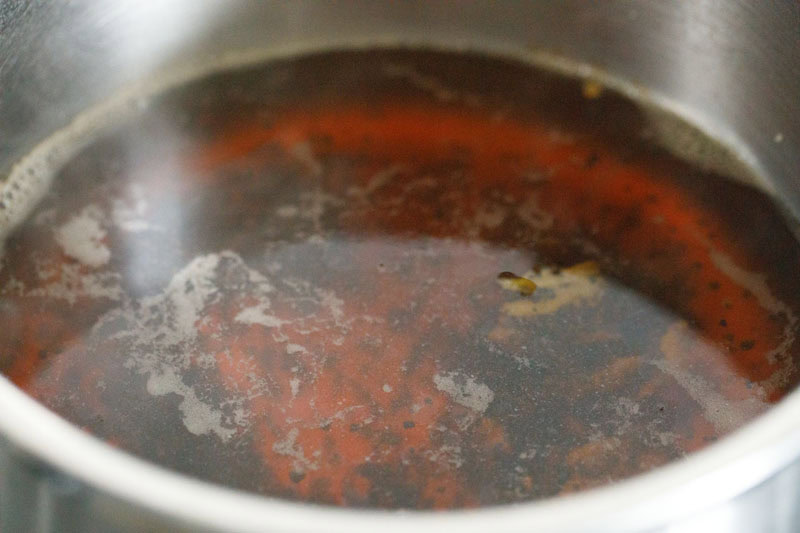
7. Next, add 8 teaspoons sugar or as per your taste. Stir well so that the sugar dissolves completely.
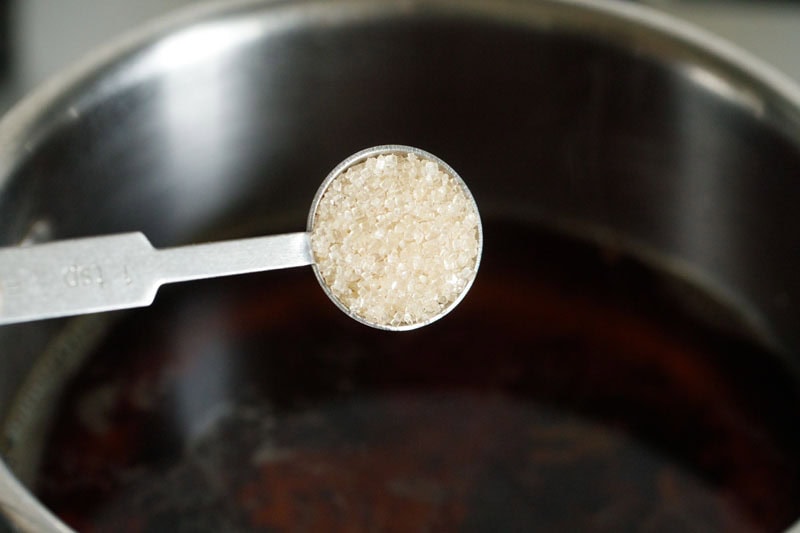
8. Switch off the heat. Add 1 teaspoon lemon juice. Mix and stir to combine.
If you like more tanginess, you can add a little more.
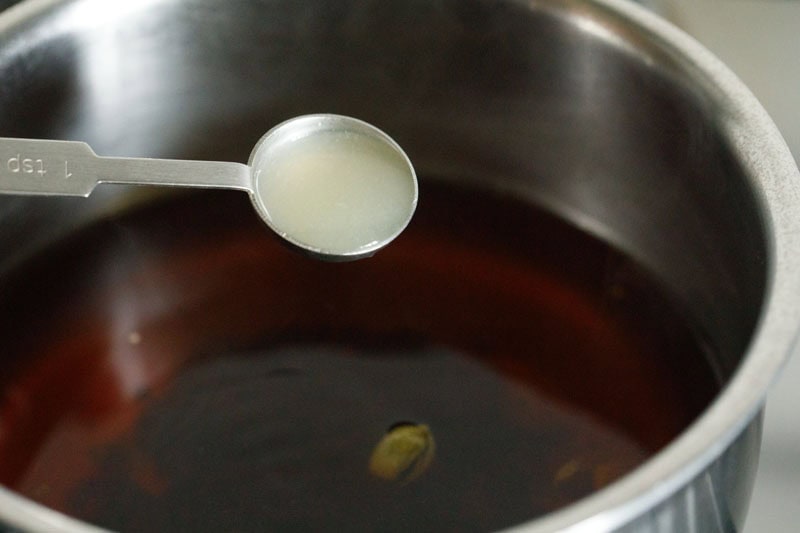
9. Additionally, add 8 to 10 fresh mint leaves (optional). Stir gently.
Cover the pan with a lid and let the tea sit for a minute to allow the flavors of the mint leaves to infuse and blend.
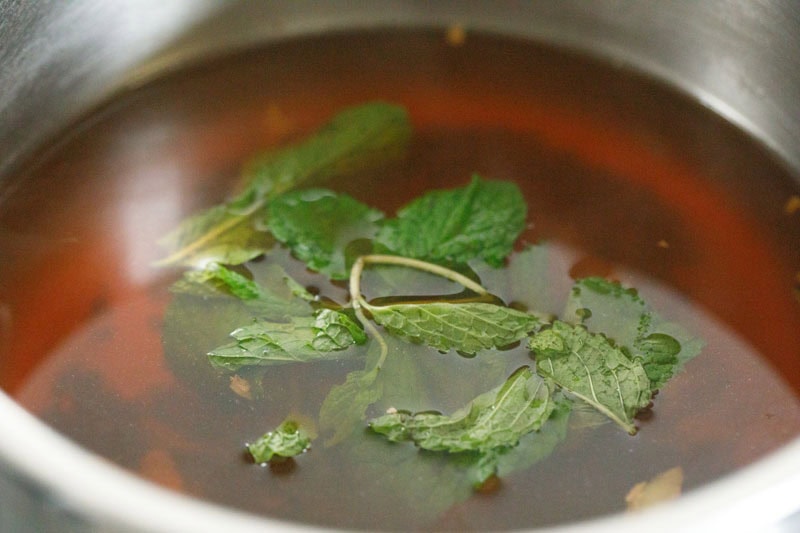
10. Strain the Sulaimani Chai into cups or glasses.
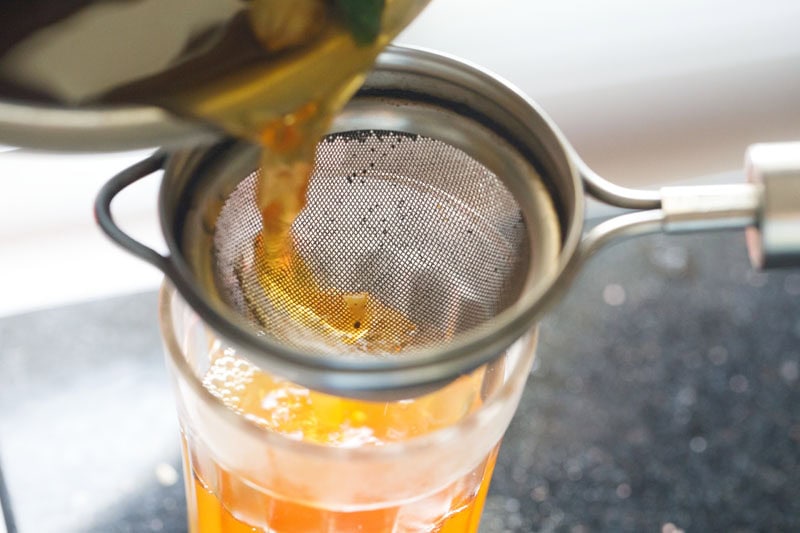
11. Serve Sulaimani Tea hot. Enjoy this light, aromatic tea after your meals or whenever you need a soothing drink.
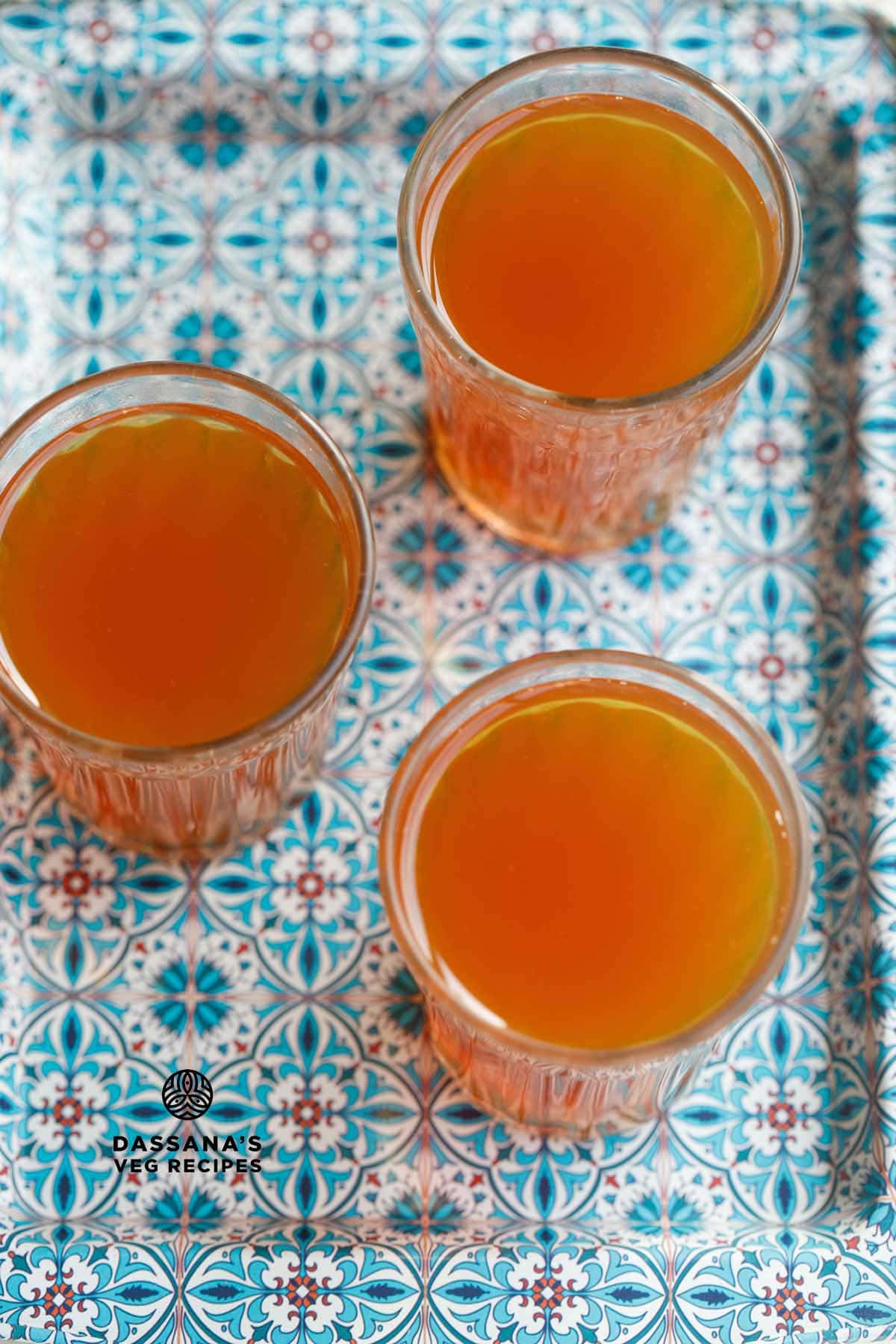
Serving Suggestions
Savor Sulaimani Tea warm after indulgent meals like biryani, rich curries or festive thalis. It’s the perfect way to aid digestion and soothe the stomach.
You can also pair it with simple bites like dates, roasted nuts or crisp savory biscuits for a light and satisfying treat.
On warmer days, chill the brewed Sulaimani Chai and pour it over ice for a refreshing twist – or try my Iced Tea recipe for a classic version made with black tea and lemon.
Expert Tips
- Tea leaves: Use good-quality loose black tea like Assam for a strong brew. For a lighter flavor, Darjeeling is a good option.
- Tea strength: Adjust the amount of tea leaves based on how strong or mild you like your tea.
- Fresh spices: Whole spices give the best flavor. You can also add star anise or fennel seeds occasionally, depending on the season or your personal taste.
- Sweeteners: Instead of refined sugar, you can use jaggery or palm sugar for a deeper, more rounded sweetness.
- Mint freshness: Fresh mint is optional, but it adds a light, cooling flavor that pairs well with the spices.
- Lemon tip: Always add the lemon juice after turning off the heat to avoid bitterness and keep the flavor fresh.
FAQs
Can I use tea bags instead of tea powder?
Absolutely! For this recipe, one black tea bag works just as well in place of the tea powder.
Can I skip the sugar?
Of course! If you prefer your tea unsweetened or are watching your sugar intake, you can simply leave it out or use a natural sweetener.
Can I add extra spices?
Definitely! Feel free to get creative – a hint of star anise or a few saffron strands can make your Sulaimani even more fragrant and special.
Can Sulaimani Tea be made in advance?
Yes, you can brew it ahead of time and store it in the refrigerator for up to a day. When ready to serve, you can gently reheat it or enjoy it cold.
Why does my Sulaimani Chai taste bitter?
Bitterness usually happens if the tea is over-brewed or if lemon juice is added while the tea is still boiling. To avoid this, simmer the tea gently for just 2 to 3 minutes and always add the lemon after you turn off the heat.
Step by Step Photo Guide Above

Sulaimani Tea Recipe
Ingredients
- 2 cups water
- 1 teaspoon black tea powder or tea leaves (or 1 tea bag) – can add 1½ teaspoon for a stronger tea flavor
- 2 green cardamoms
- 2 cloves
- ½ inch cinnamon (true cinnamon and not cassia cinnamon)
- 1 inch ginger – peeled and rinsed, optional
- 8 teaspoons raw sugar or use white sugar, add as required
- 1 teaspoon lemon juice – can add more for more tangy taste
- 8 to 10 mint leaves – optional
Instructions
Crush Spices & Ginger
- Lightly crush the green cardamom pods, cloves, cinnamon stick, and ginger in a mortar-pestle.
Boil Water with Spices
- In a saucepan, add water along with the crushed spices and ginger.
- Bring to a boil on medium heat. Then simmer for 4 to 5 minutes so the flavors of the spices infuse into the water.
Make Sulaimani Tea
- Add black tea powder or use tea bags.If using loose tea leaves, turn off the heat and add the tea leaves. Mix, cover pan with a lid and steep for 2 to 3 minutes.
- After adding the black tea powder, simmer for 2 to 3 minutes until the tea color deepens. Avoid over-boiling to prevent bitterness.
- Next add sugar and stir well until dissolved. Turn off heat.
- Add lemon juice and gently stir. Add fresh mint leaves if using. Cover with a lid and let the tea rest for a minute.
- Strain the tea into cups or glasses and serve hot.
Serving Suggestions
- Serve Sulaimani Chai hot after heavy meals like biryani, curry meals, or festive thalis.
- You can also enjoy it with snacks like dates, nuts, or savory biscuits.
- For a refreshing iced version, refrigerate the brewed tea and serve it chilled over ice.
Dassana’s Notes
- Adjust the amount of tea leaves for a stronger or lighter tea.
- Always add lemon juice after switching off the heat to avoid bitterness.
- Fresh mint leaves give a cooling, refreshing touch but are optional.
- Use jaggery or palm sugar as a healthier alternative to regular sugar.
- Do not over-steep the tea, or it may turn overly strong or bitter.


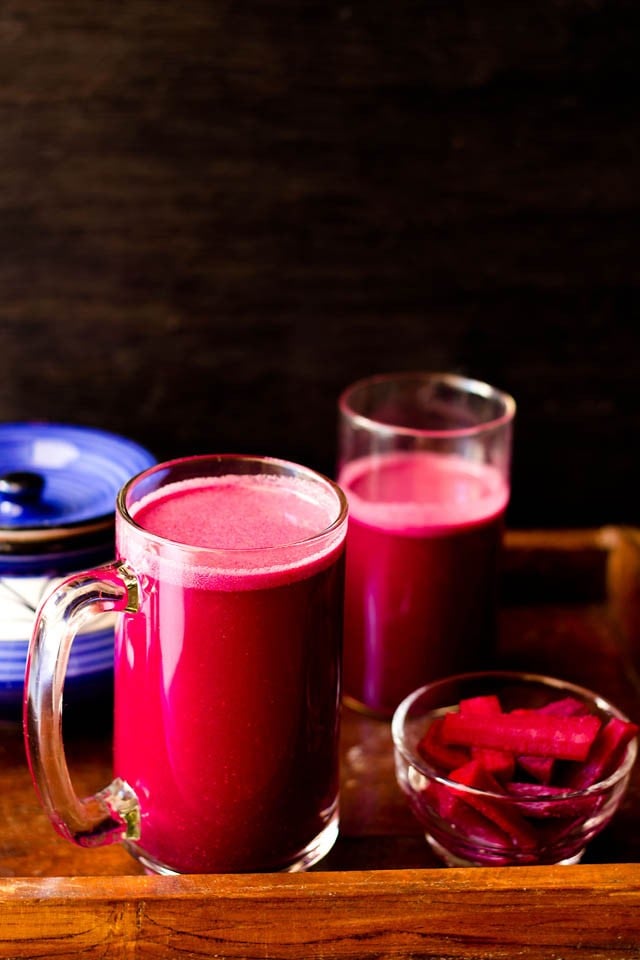
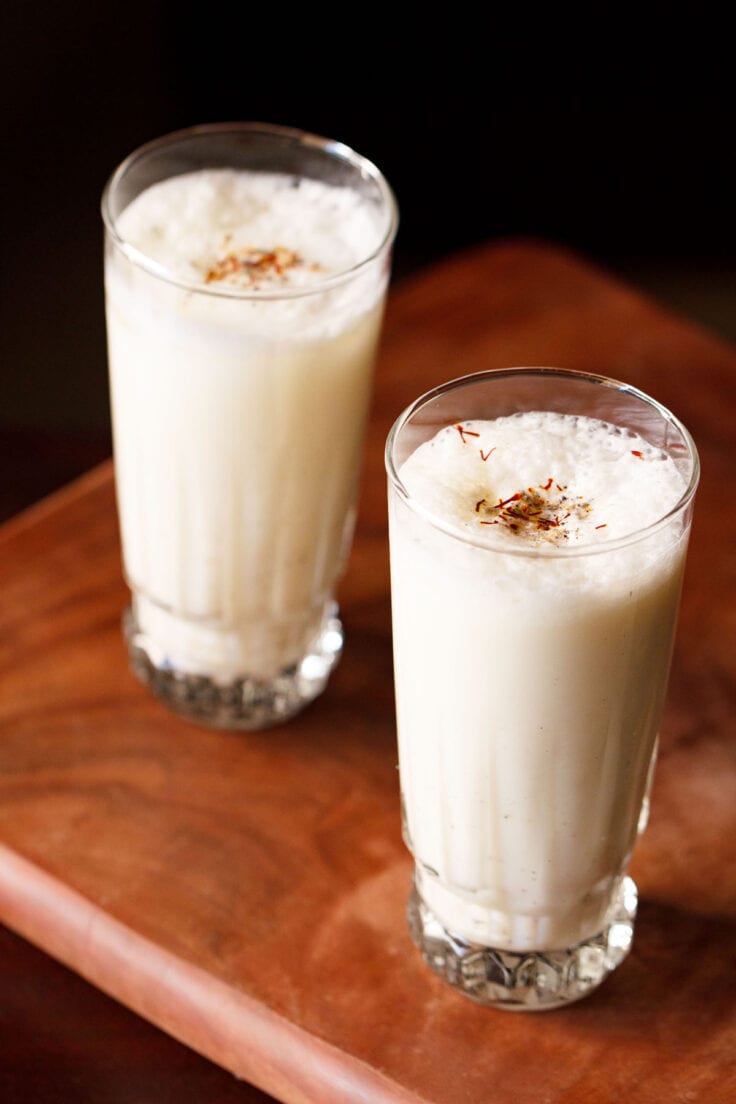

It take time but result is wonderful. Who would have thought we can make tea like this? It’s good.
True! Sometimes a little extra time gives the best results.
Thank you for sharing this recipe and reviving my memories of Hyderabad! 🙂
Happy to know the recipe brought back your Hyderabad memories. Thank you for sharing.
Thanks for sharing this recipe. It’s one of my favourite tea.
You’re most welcome. Glad to know it’s one of your favorites. It’s such a comforting and refreshing tea.